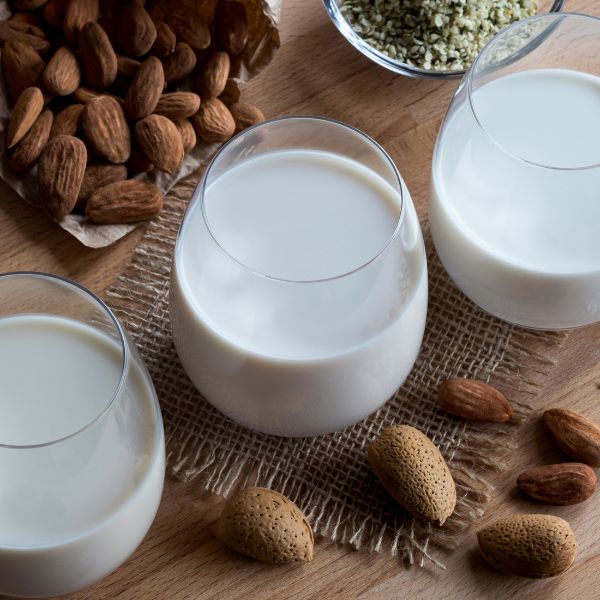 Whether due to lactose intolerance or following a vegan diet, not everyone drinks dairy milk. Alternatives may seem more appealing to these individuals but can trigger allergies or digestive issues, including from nut or soy-based ingredients. At the same time, this group of products has a different nutritional profile than traditional dairy.
Whether due to lactose intolerance or following a vegan diet, not everyone drinks dairy milk. Alternatives may seem more appealing to these individuals but can trigger allergies or digestive issues, including from nut or soy-based ingredients. At the same time, this group of products has a different nutritional profile than traditional dairy.
Whether you’re on the fence or looking to explore your options further, consider the pros and cons of milk alternatives.
Benefits of Milk Alternatives
Plant-based milk alternatives include a broad range of products, from traditional soy milk to rice and coconut varieties. Over the past decade, nut-based, oat, pea and hemp milks have grown in popularity.
If you’re eliminating dairy or exploring alternatives to lactose, these plant-based milk substitutes:
- Align with both vegan and plant-based dietary recommendations
- Are less likely to trigger digestive issues in someone who’s lactose intolerant
- Have a lower carbon footprint than traditional dairy products, as production emits fewer greenhouse gases
- Are fortified for macronutrients, including calcium and vitamins B12, A, E and D
Among the possibilities available, oat milk is better suited to individuals with a nut allergy. However, it contains more carbohydrates and less protein than other varieties. Across all types, pea-based milk is the least likely to trigger an allergic reaction, while nut and pea-based milks have the highest protein content.
Concerns Regarding Plant-Based Milk Alternatives
Despite these overall advantages, plant-based milk alternatives are not a perfect food:
- Most contain fewer micronutrients compared to dairy products, including low to no magnesium, zinc, selenium or phosphorus. Pea and soy-based milks tend to provide a more comprehensive nutritional profile to nut, oat, rice or hemp.
- Not all plant-based milks leave a similar environmental footprint. Growing almonds requires more water and generates more emissions, putting their footprint on par with dairy products.
- Individuals looking to avoid allergens have a smaller group of products to choose from, as both nut and soy-based milks may trigger an allergic reaction.
- Oat milk is not ideal for people with celiac disease, as it contains gluten.
- No significant research has been done on the body’s ability to absorb nutrients from plant-based milks.
- Myths about soy persist, including that the substance can affect testosterone levels and increase risks for breast cancer.
Explore the possibilities of vegan cooking at Colony Diner! Check out our vegan menu, including breakfast, lunch, dinner and desserts.






